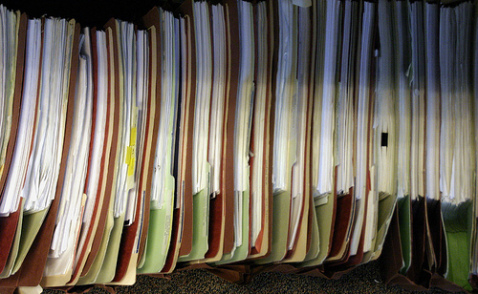Attitude-shamtitude
/I've thought about writing some version of this post many-many times over the years. The post where I'd let go and let fly about just how much I dislike-- scratch that-- how much I hate positive thinking. Because oh yes, I do. In my imaginary post, I'd rage on about how insidious the movement is, essentially blaming those who end up in unhappy circumstances for their own fate. Negative emotions, the story goes, cause bad things to happen. Staying positive, usually with the help of some set of specified exercises, will bring you all the good things you need. Money, health, everything. Bulltshit! A pile of crap. A big, stinking pile of crap.
And it stinks worse every time you try to poke a stick at it to see whether it really is a pile of solid crap, or whether maybe there's some substance mixed in or buried underneath. Because really, from where I sit, to tell people struggling with cancer and the effects of cancer treatments, or people in tough economic circumstances, or people-- let's just say, entirely hypothetically-- grieving their dead child that they "have to stay positive," to have the gall to tell people how they should deal with their own physical and mental anguish, well, one must be high. Perhaps on the noxious vapors from that giant pile of crap. Have to? You don't say! Because what? Puking ones guts out is supposed to be fun? Or enlightening? Or because worrying about making rent or having enough to feed one's family is just silly? Or because continuing to grieve is what? Preventing us from "moving forward"? Oh, I see-- because if you don't, you might succumb to the disease, make your economic matters worse, or not get to have another child (because remember-- children, much like purses, are fungible). Only if you stay positive will you recover, improve your money situation, or bring home that bundle of joy. Bullshit! And also? Insidious and just plain mean.
And, unfortunately, all too common. It wears many hats, sometimes technicolor bright, making it impossible to miss what it's all about. "I ate right and exercised all through my pregnancy" it proclaims loudly on the playground, "I only gained 20 pounds, and labor was this transcendent experience, and he is just the healthiest baby I've ever known!" And sometimes it's a lot more subtle, whispering doubts into our fragile souls-- "maybe he died because I didn't want him enough," "maybe it's because I ate sushi," or "maybe I was so worried about having to take time off from work that I caused this to happen." No, no you didn't. (You know you didn't, right? Our thoughts don't make things happen. Not good things, and not bad things. You didn't cause this.)
So you know what? I hate positive thinking. Not only for what it does to the vulnerable people directly, but also for what it does to the social fabric that surrounds them (us). For some mind-bending examples of finding oneself in an environment where such thinking is normalized and even promoted you really can't beat Barbara Ehrenreich's 2009 book Bright-sided. The book was prompted by and starts with Ehrenreich's own experience of getting breast cancer and suddenly finding herself in the "pink ribbon culture," where there really isn't a word for a woman who never made it to "survivor" or has fallen off that wagon, so to speak, where "[w]hat does not destroy you.... makes you a spunkier, more evolved sort of a person." and where the book titles such as The Gift of Cancer: A Call to Awakening do not raise an eyebrow. And what if you don't want to sing an ode to breast cancer, either because you see it as a disease that took a significant physical and psychological toll, or because you yourself are not and will not be a "survivor"? Well, then, you're doing it wrong.
Bright-sided came out when I was barely two years out from A's death and somewhat acutely sensitive to the positive thinking bullshit that kept popping up all around me. So I cheered the masterful takedowns of the individual piles of crappola, starting with the world of breast cancer and going wider and deeper. I found the history lesson on the roots of positive thinking in America to be fascinating. I found tracing of the role of positive thinking in bringing about the financial crash of 2008 fascinating too-- in a way that watching a slow-motion replay of a test car crashes is fascinating (except, of course, it wasn't dummies being crumpled by the financial crash). The chapter I thought at the time was the weakest in the book was the one on positive psychology.
I went back this week to re-read that chapter (and re-skim the rest of the book). This time it seemed less removed from the rest of the book, less like it was picking on an individual human with somewhat obvious character flaws, that person being the then-President of the American Psychological Association Martin Seligman. This time the chapter seemed downright prescient, much like that kid who pointed out the fairly profound lack of layers that a certain monarch was employing in his wardrobe. Prescient of what, say you, and why reread the chapter? Glad you asked.
Recently a friend pointed me to an article (which contained a link to another article on the same subject, this one much shorter) about a recent takedown by an unlikely band of takers-of-no-shit of something of a centerpiece of the discipline of positive psychology, advancing which Martin Seligman has made the defining mission of his tenure as the President of APA. What takers-of-no-shit took down was a seemingly super-important paper, published in 2005 and since referenced over 350 times, including in popular psychology books by one of the paper's authors, Barbara Fredrickson, a star of positive psychology if there ever was one, and by Seligman himself. The paper, see, claimed to have found a ratio of positive to negative statements or emotions that separates "flourishing" people and groups from "languishing" ones. The ratio was supposed to be, I shit you not, a straight up exact number. 2.91013:1.
You know what that ratio and the whole bloody cottage industry that grew up around it turned out to be? If you guessed crap-encrusted filet of crap with crap demi-glaze and some whipped crap on the side, you are absolutely correct. It was fake. A stopped clock derived from fudged messing around with equations of certain aspects of fluid mechanics. The paper that took it down was called in the original manuscript "The Complex Dynamics of an Intellectual Imposture." Sadly, the authors changed it to "The Complex Dynamics of Wishful Thinking" before publication to step on less academic toes.
The person who first smelled the crap, and who was able to claw his way through enough complicated math to determine that the number was fake, is my new personal hero, Nick Brown, a then-50 year old master's student of the University of East London where he was studying, wait for it-- applied positive psychology. Yeah, he was paying money to study this stuff. And he is not the only one. Martin Seligman runs a one year program at UPenn that costs nearly nothing to attend, chump change really, a mere 45 grand. Yup, for one year. He is also at the heart of a project with the Army that is running United States taxpayers a cool $125 million plus, though it seems to have done nothing to reduce PTSD-- a prominent goal of the thing.
It bothers me to no end when science and math are misused. It undermines public confidence in the whole enterprise, making it harder for good research to be taken seriously. I've talked to my students many times about examples of bad research or bad reporting of research (or both at the same time). And more often than not I find that as I talk about these things my voice starts to shake. It's not nerves-- it's indignation. I guess I am still enough of a science idealist to think that doing research the right way really-really matters. And in this particular case, holy crap does this burn me! This is not a victimless little fudge, a small shading of data to advance one's career. This has real consequences for real people-- it spreads the reach of mandatorily bright-sided environment, making it more likely that more people will be told by some positive psychology devotee somewhere that they need to adjust their attitudes. You know, find 2.9103 positive emotions to counterweigh the bummer of their kid still being dead. And isn't that the kind of advice we all need more of in our lives?
This is my opinion. What's yours? Tell us, please.
Oh, and by the way, the articles I linked above are well worth the read. Enjoy!



